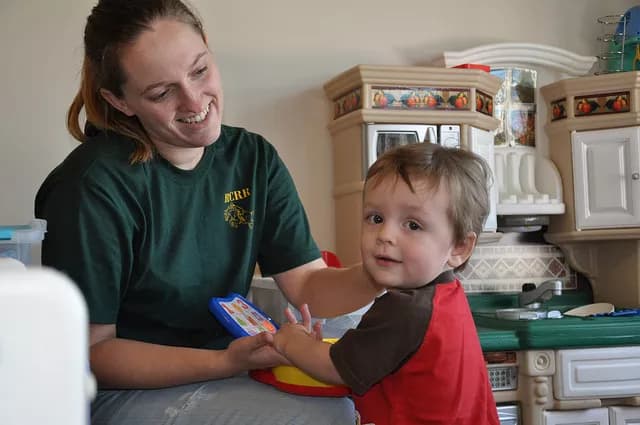
Helping Others Dampens The Effects Of Everyday Stress
Providing help to friends, acquaintances, and even strangers can mitigate the impact of daily stressors on our emotions and our mental health, according to new research published in Clinical Psychological Science, a journal of the Association for Psychological Science.
“Our research shows that when we help others we can also help ourselves,” explains study author Emily Ansell of the Yale University School of Medicine. “Stressful days usually lead us to have a worse mood and poorer mental health, but our findings suggest that if we do small things for others, such as holding a door open for someone, we won’t feel as poorly on stressful days.”
We often turn to others for social support when we’re feeling stressed, but these new results suggest that proactively doing things for others may be another effective strategy for coping with everyday worries and strains.
“The holiday season can be a very stressful time, so think about giving directions, asking someone if they need help, or holding that elevator door over the next month,” Ansell adds. “It may end up helping you feel just a little bit better.”
Laboratory-based experiments have shown that providing support can help individuals cope with stress, increasing their experiences of positive emotion. To investigate whether this holds true in the context of everyday functioning in the real world, Ansell and co-authors Elizabeth B. Raposa (UCLA and Yale University School of Medicine) and Holly B. Laws (Yale University School of Medicine) conducted a study in which people used their smartphones to report on their feelings and experiences in daily life.
A total of 77 adults, ranging from 18 to 44 years old, participated in the 14-day study; people with substance dependences, diagnosed mental illness, or cognitive impairment were not included for participation.
The participants received an automated phone reminder every night that prompted them to complete their daily assessment. They were asked to report any stressful life events they experienced that day across several domains (e.g., interpersonal, work/education, home, finance, health/accident) and the total number of events comprised the measure of daily stress. They were also asked to report whether they had engaged in various helpful behaviors (e.g., held open a door, helped with schoolwork, asked someone if they needed help) that day.
The participants also completed a 10-item short-form of the Positive and Negative Affect Scale, a well-validated measure of experienced emotion, and they were asked to rate their mental health for that day using a slider on a scale that ranged from 0 (poor) to 100 (excellent).
The results indicated that helping others boosted participants’ daily well-being. A greater number of helping behaviors was associated with higher levels of daily positive emotion and better overall mental health.
And participants’ helping behavior also influenced how they responded to stress. People who reported lower-than-usual helping behavior reported lower positive emotion and higher negative emotion in response to high daily stress. Those who reported higher-than-usual levels of helping behavior, on the other hand, showed no dampening of positive emotion or mental health, and a lower increase in negative emotion, in response to high daily stress. In other words, helping behavior seemed to buffer the negative effects of stress on well-being.
“It was surprising how strong and uniform the effects were across daily experiences,” says Ansell. “For example, if a participant did engage in more prosocial behaviors on stressful days there was essentially no impact of stress on positive emotion or daily mental health. And there was only a slight increase in negative emotion from stress if the participant engaged in more prosocial behaviors.”
The researchers note that additional studies will be necessary to determine whether the findings hold across ethnically and culturally diverse populations.
A particularly important avenue for future investigation, the researchers say, is to determine whether actively prompting people to engage in more helping behavior can further improve their mood and mental health.
“This would help clarify whether prescribing prosocial behaviors can be used as a potential intervention to deal with stress, particularly in individuals who are experiencing depressed mood or high acute stress,” Ansell concludes.
The above post is a redistributed news release provided by the Association for Psychological Science. Note: Materials may be edited for content and length.
Disclaimer: DoveMed is not responsible for the adapted accuracy of news releases posted to DoveMed by contributing universities and institutions.
Primary Resource:
E. B. Raposa, H. B. Laws, E. B. Ansell. Prosocial Behavior Mitigates the Negative Effects of Stress in Everyday Life. Clinical Psychological Science, 2015; DOI: 10.1177/2167702615611073Related Articles
Test Your Knowledge
Asked by users
Related Centers
Related Specialties
Related Physicians
Related Procedures
Related Resources
Join DoveHubs
and connect with fellow professionals

0 Comments
Please log in to post a comment.